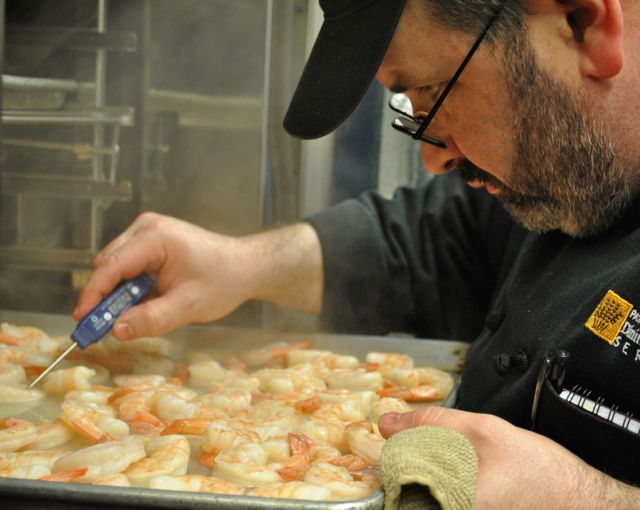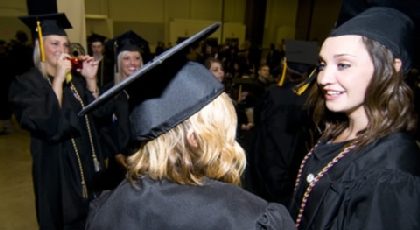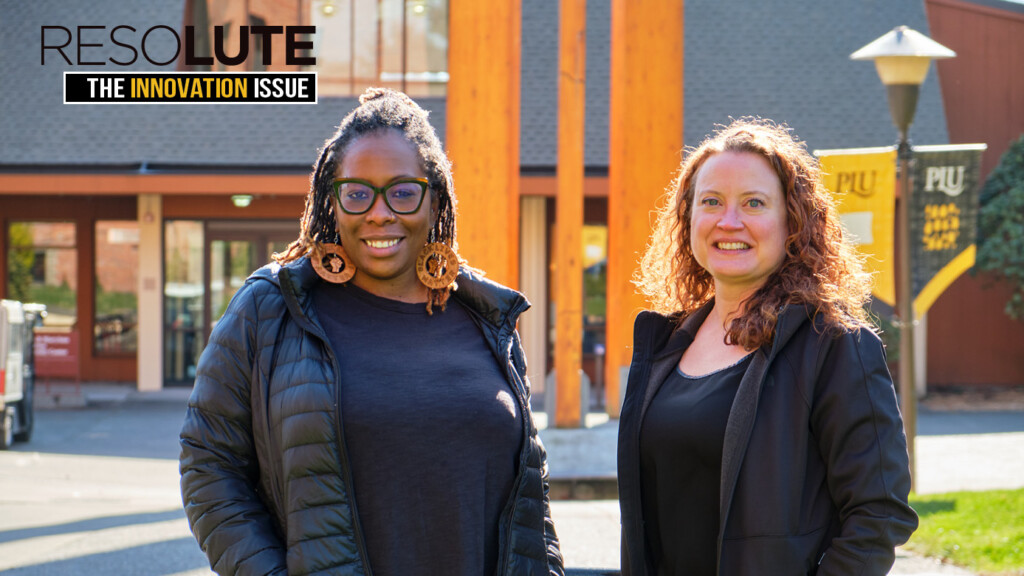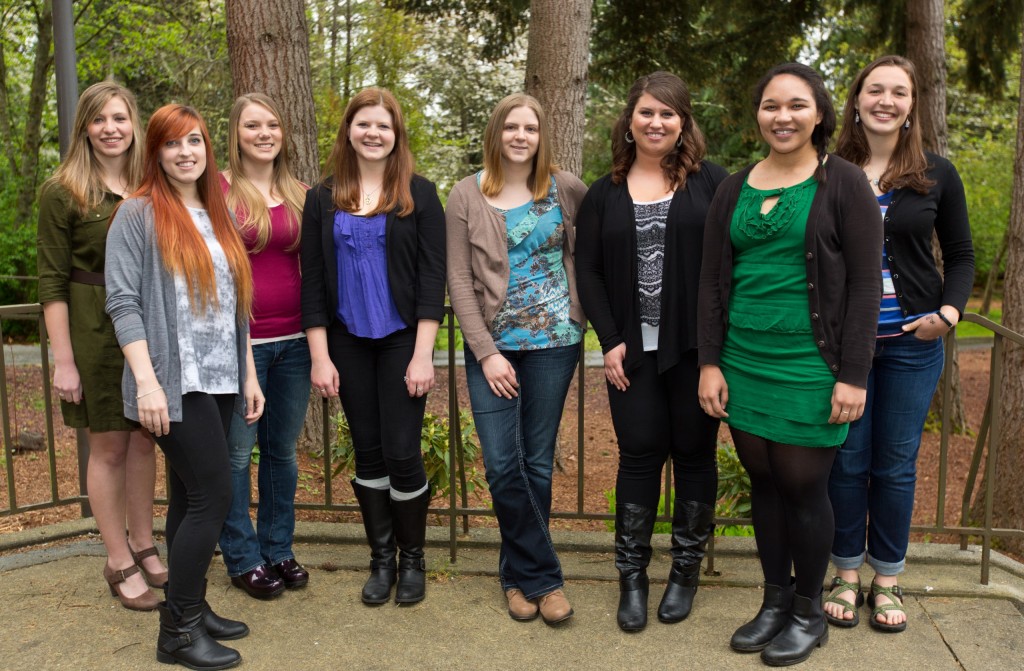Page 71 • (711 results in 0.144 seconds)
-
of another’s, and some very fine ones … have subjected Austen’s work to any number of cultural, temporal, geographical and vernacular liberties.” Definitely okay with an up-to-the-minute Austen; the LA Times has company on just this score—many of the elements here are present in other reviews. Some sort of explicit “of course I like modernizations” is a signal feature. I myself profess a wish, if we’re going on about twists on Austen’s novels, that American reviewers could find it within
-

plates. You get the chance to do everything from good old American diner food to five-star food.” PLU cook Chuck Blessum boils noodles for dinner in the University Commons. Balancing quality and quantity Along with the assembly-style serving lines, PLU ditched the traditional “cafeteria food” and mystery meat long ago. The menu in the Commons reads like one you’d see at a fancy restaurant: Pozole with pork or beans, sopapillas, Steakman Jack soup with cornbread muffins, sweet potato fries, and
-
eradicating racism in the U.S. Armed Forces. My father had helped found the Army Community Service, which included many resources for combating racism and helping the Armed Forces become the first major American institution to desegregate.And my father, with my mother’s important help, founded the Defense Race Relations Institute to train professionals to deal with racism and bias. As a child, I remember protesters waving the Confederate flag and spitting invective at my parents and their coworkers. The
-

Classics and early American political thought, especially through the writings of Thomas Jefferson and John Adams. Carre Avary – Bachelor of Arts in education Why PLU? I’ve wanted to go to PLU for as long as I can remember. When I decided to go into education, PLU was the best fit for me and my family. My PLU experience: The students in the education department have become an extended family. I have learned more here than I ever thought I would. I have built relationships that will last a lifetime
-

ACTIONHere’s how the group grappled with how (and whether) equity work and thinking — conceived of as “diversity and inclusion” or “D&I” at PLU — might be considered innovative: Tyler: Well, let me start with this: I think the way that we in the American and Western paradigm understand D&I is through the lens of capitalism. We’re looking for something new, something lucrative, something about ownership and commodity and quotas that can be framed as something innovative, right? And because of that, I get a
-

American Association of University Women, I was one of the recipients of the National Conference on College Women Student Leaders (NCCWSL) National Scholarship and Travel Grant recipients in spring 2013. With this scholarship and grant, I traveled to Washington, D.C., to attend NCCWSL, where I learned to be more proactive and mindful in my diverse leadership roles. • After graduating from PLU in January 2014, I was given the opportunity by Jennifer Warwick to co-advise participants in the Empower
-

is getting people to be willing to come to the bargaining table,” Daugherty said. “They get stuck in beliefs, but we can work together, with open-mindedness.” “Peace-building needs to start with one person, bottom-up. When you get a group of people, like at PLU, you can make a difference by being passionate. PLU does a really good job of promoting international education. It’s essential in peace-building and conflict resolution.” Post-PLU plans: Daugherty will intern with the American Red Cross
-
scale layoffs, mandated furloughs, and cancelled searches across the landscape of American higher education. It also needs to be said that supporting one another in our work is not just an economic issue. Indeed, it is our shared mission, our sense of call and vocation, and our assurance that we, each of us, are valued and important that really matters when the market is up, and when it is down. By that “softer” standard, we are doing very well. Goal #3: Academic Excellence Our third goal is to
-

closed conifer cones. Crossbills forage by biting between overlapping scales and laterally abducting the lower mandible, thereby prying the scale apart to expose the seed at the base. North American red crossbills are categorized into 10 call types that differ in body size, bill size and palate structure, and non-song vocalizations. The structure of the conifer cones on which each call type specializes is the agent of selection driving the evolution of bill and palate structure between the different
-
tributaries. Three of our faculty also received Fulbright Awards last year. Joanne Lisosky will teach journalism at Baku University in Azerbaijan beginning next January. Janet Weiss traveled to Namibia in July to undertake work in curriculum development. Jennifer Jenkins participated this past summer in the Baden-Württemberg Seminar for American Faculty in German and German studies. Every year our faculty produce hundreds of publications, creative works and performances. And this commitment to our
Do you have any feedback for us? If so, feel free to use our Feedback Form.


